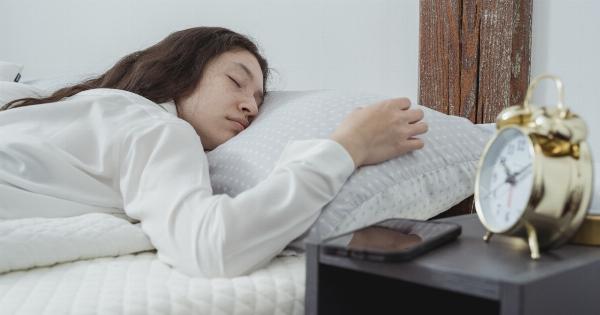Everyone aspires to have a head full of healthy hair that will give them a confident and attractive look. However, not everyone gets those healthy locks, and some start experiencing hair loss and graying quite early in life.
While hair loss and graying are natural phenomena that can happen due to age, there are several other reasons why hair can start graying too early.
1. Genetic Predisposition
Genetics plays an essential role in determining the rate of hair growth, hair loss, and graying. If baldness and premature graying run in your family, it’s likely that you will also experience them at an early age.
This kind of baldness is called androgenetic alopecia, and it’s caused by the genes passed down from parents to their offspring.
2. Nutritional Deficiencies
Healthy hair growth requires a balanced diet rich in essential minerals and vitamins such as biotin, iron, and zinc. Inadequate intake of these nutrients can lead to hair loss and early graying.
A protein-rich diet is also essential, as hair is made up of proteins such as keratin. A poor diet leads to malnourishment and can result in hair thinning, hair loss, and graying.
3. Hormonal Imbalance
Hormones play a crucial role in regulating hair growth. Hormonal imbalances, such as an overactive or underactive thyroid gland or polycystic ovarian syndrome (PCOS), can cause hair to turn gray prematurely.
These conditions affect the production of melanin, which is responsible for giving hair its color.
4. Stress and Anxiety
Stress and anxiety can lead to premature graying of hair. Chronic stress increases cortisol levels, which inhibit the production of melanin. This can result in graying of hair at an early age.
Stress is also responsible for triggering hair loss, which can lead to baldness.
5. Smoking and Tobacco Use
Tobacco use is one of the major causes of premature graying of hair. Smoking and tobacco use lead to the production of free radicals, which damage the hair follicles. This reduces the production of melanin and leads to hair graying.
6. Environmental Factors
Environmental factors such as exposure to pollution, harsh chemicals, and sunlight can also lead to premature graying of hair. Prolonged exposure to UV rays damages the hair cuticle, leading to hair dryness, thinning, and graying.
Exposure to chemicals in hair dyes and shampoos can also damage hair follicles, resulting in the premature graying of hair.
7. Autoimmune Disorders
Autoimmune disorders such as vitiligo, alopecia areata, and lupus erythematosus can cause hair graying at an early age. These conditions lead to the destruction of melanin-producing cells, resulting in reduced melanin production.
8. Medical Conditions
Certain medical conditions, such as anemia, thyroid disorders, and chronic infections, can lead to premature graying of hair.
These conditions affect the supply of essential nutrients to hair follicles, reducing melanin production and leading to hair graying.
9. Medications
Certain medications, such as chemotherapy drugs, can lead to hair loss and premature graying of hair. Chemotherapy drugs attack rapidly dividing cells, and hair follicles are highly susceptible to damage.
As a result, hair growth is halted, and hair starts graying prematurely.
10. Excessive Styling
Excessive heat styling, chemical treatments, and harsh brushing can damage hair follicles, leading to hair thinning and graying.
Overuse of heat styling tools such as curling irons, straighteners, and blow dryers, can damage hair, resulting in hair loss and graying at an early age.
Conclusion
Gray hair is a natural sign of aging, but premature hair graying can be a cause of concern.
Genetic predisposition, nutritional deficiencies, hormonal imbalances, stress and anxiety, smoking, environmental factors, autoimmune disorders, medical conditions, medications, and excessive styling can all lead to premature hair graying. Understanding the underlying causes can help prevent hair graying, and maintaining a balanced diet and healthy lifestyle can keep hair healthy and strong for a long time.































